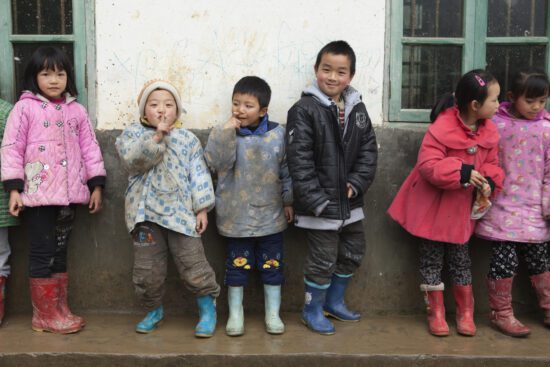When God created the world, man had incredible freedom, important responsibility, and inordinate adventure.
However, it wasn’t enough. Satan, as he so often does, tricked humanity into trading an infinitely good thing for temporary satisfaction that ultimately led to shackles (Genesis 3). That first bite of the forbidden fruit changed everything in a moment—our relationship with God, the world, and each other.
We feel the effects of that original sin every day in the big and small things of life as we cry out, along with the Apostle Paul, “For I do not do the good I want, but the evil I do not want is what I keep on doing. Now if I do what I do not want, it is no longer I who do it, but sin that dwells within me” (Rom. 7:19-20).
Because of sin and the resulting brokenness, we are in a predicament. We long to do good, but we wrestle with our sin and humanity while consistently failing to live up to God’s ideal. This affects our vertical relationship with the Lord which then trickles down into our horizontal relationships as we fail to care for and show compassion to those around us, much less others around the world.
Turning from an inward focus
Jesus himself knows that our sinful tendency is to focus on ourselves and resist caring for the vulnerable around us. In Matthew 25, Jesus pointed to those who fed, clothed, visited, and cared for the marginalized, especially among fellow believers, as his true followers. Our Lord pointed to these good works, not because they are able to rescue us from our sin, but because good works like these are characteristic of someone who has been redeemed by Jesus and is being transformed into his image day by day.
It is our natural bent to remain inwardly focused and comfortable in our own safe geographic, economic, cultural, and certainly linguistic paradigms. Without even knowing it, we let self-interest and protection rule, while our world becomes smaller, and we grow blind to the suffering of others. But God is continually calling us to something better, and it’s to lay down our lives, our interests, and our rights on behalf of others—our brothers and sisters in Christ, our neighbors, the poor, the marginalized, the oppressed, and the orphan (Luke 9:23-24; James 1:27). He calls us to model his grace through the hard work of physical reconciliation and redemption (2 Cor. 5:18).
Every person, from every tribe, tongue, and nation, is created by God, made in his image, and purposed for his works. No one is outside of God’s purview. Bearing an indelible mark of their creator, all are made unique and special, and are infinitely loved. No one needs to understand this truth more than those who are on the margins of our world—the vulnerable children living on the street, the single mother with two jobs, children living with special needs, and the child yet to be born.
Seeing all men as immortal
When God declared in Genesis 1:27 that we are made in his image, it was an all-encompassing statement: “So God created man in his own image, in the image of God he created him; male and female he created them.” Man. Humanity. All.
C.S. Lewis brings this point home in The Weight of Glory: “There are no ordinary people. You have never talked to a mere mortal. Nations, cultures, arts, civilizations—these are mortal, and their life is to ours as the life of a gnat. But it is immortals whom we joke with, work with, marry, snub, and exploit.”1C.S. Lewis. The Weight of Glory, HarperSanFrancisco, ©1949 C.S. Lewis Pte. Ltd., Copyright renewed © 1976, revised 1980 C.S. Lewis Pte. Ltd., pp. 45-46.
This immortality is an enduring truth and one that points to God’s utter goodness and grace that none of us has earned (1 Cor. 15:50-54). Before Adam and Eve had done a thing, they had God’s image. Scripture is clear about the truth of human dignity from beginning to end. Even when we were still sinners, Christ died for us. Even when we were far off, God heard us. Even when we are faithless, he is faithful (Rom. 5:8; Col. 1:21).
We humans aren’t always willing or even able to see this dignity and the sheer goodness of God that it represents in our own lives, much less the lives of others. We come from a long line of God’s people who fail to see what God sees in the people made in his image. Cain murdered his brother, Abel. Joseph’s brothers sold him into slavery. David dishonored Uriah the Hittite and defiled Bathsheba. All of these acts show our self-centeredness, our sin, our failure to see immortality, and our blindness to the image of God placed in others.
We continually fall short when it comes to acknowledging God’s image in others.
Developing this comprehensive understanding of others’ dignity is difficult because of the sin which took residence in this world in the Fall. However, our God is more powerful than sin living in us (1 Cor. 2:12; 1 John 4:4). Because of the sweet, restorative grace of Jesus, Christ followers have the ability to confess our sin, get back up when we fall, and then try again. And he gives us the Holy Spirit, who transforms our hearts and enables us to see the dignity and worth in every person we meet.
Working with children who are vulnerable, wounded, forgotten, and orphaned has given me a front-row seat to what happens when the Body of Christ begins to see others the way God sees them. We start to see the beauty in those who are ignored and locked away in orphanages. We see the potential of the fatherless as we help them dream about the future. And we experience the Body of Christ filled with joy as we see families reunited and children given opportunities through adoption. This is just a taste of what gospel-driven justice looks like.
Living as Christ’s ambassadors
All of creation points back to God and brings glory to his name. However, only humanity bears his image and demonstrates the profoundly life-changing attributes of his love, grace, kindness, goodness, humility, and more. As Paul said in 2 Corinthians 5, we are Christ’s ambassadors. As we pursue acts of gospel-driven justice, seeking to uphold the immeasurable worth of every individual, we reflect the image of God in us and display his marvelous glory.
I love how Matt Chandler, pastor of The Village Church in Dallas, Texas, explains why we step into this gospel-driven justice. He says, “We live open-handed lives and seek to spot injustice and despair around us, and we enter into sorrow and pain so that the love, mercy, and beauty of God’s reconciling work in Christ can be seen in our lives in the hopes that a broken world will see and give praise to God.”2Matt Chandler, The Explicit Gospel (Wheaton, IL: Crossway, 2014), 150.
Beloved, the Word of God is full of imperatives toward gospel-driven justice for the orphan and vulnerable. This kind of justice is utterly pro-life and entirely biblical. When we show the gospel to vulnerable children and their families, we are demonstrating to them that we truly believe that every individual life bears the image of the Creator. And we open the door to tell others about the One who is life himself.
The greatest evidence of the sanctity of life found in the Bible is that God sent forth his Son, born of a woman and made in the image of God, to live, suffer, and die so that through his resurrection, he might redeem broken image-bearers back to God. Life itself is sacred because we have a God who created it, took on human flesh, and paid the ultimate price to sanctify it.
On this side of the cross and resurrection, the same enemy of Genesis 3, Satan, is alive and well, deceiving men as he awaits his final destruction, twisting God’s truth, and tempting men’s hearts to cast aside their fellow man. We must resist him with every fiber of our being and every resource from the Spirit so that he will flee from us (James 4:7). In our culture, part of that resistance means proclaiming the truth of God’s Word and advocating for every individual, from womb to tomb, to be protected and respected.
As the church of the Lord Jesus Christ, we have been given the mission to reclaim the broken in the name of our Savior. This mission we have received is costly and dangerous. We will raise questions and proclaim truths that sinful men do not want to hear. Nevertheless, we must persevere. Let’s pray for eyes to see and ears to hear the call and prompting of the Spirit to show and proclaim the gospel through our care for the vulnerable ones, the widows, and the orphans throughout the world.










